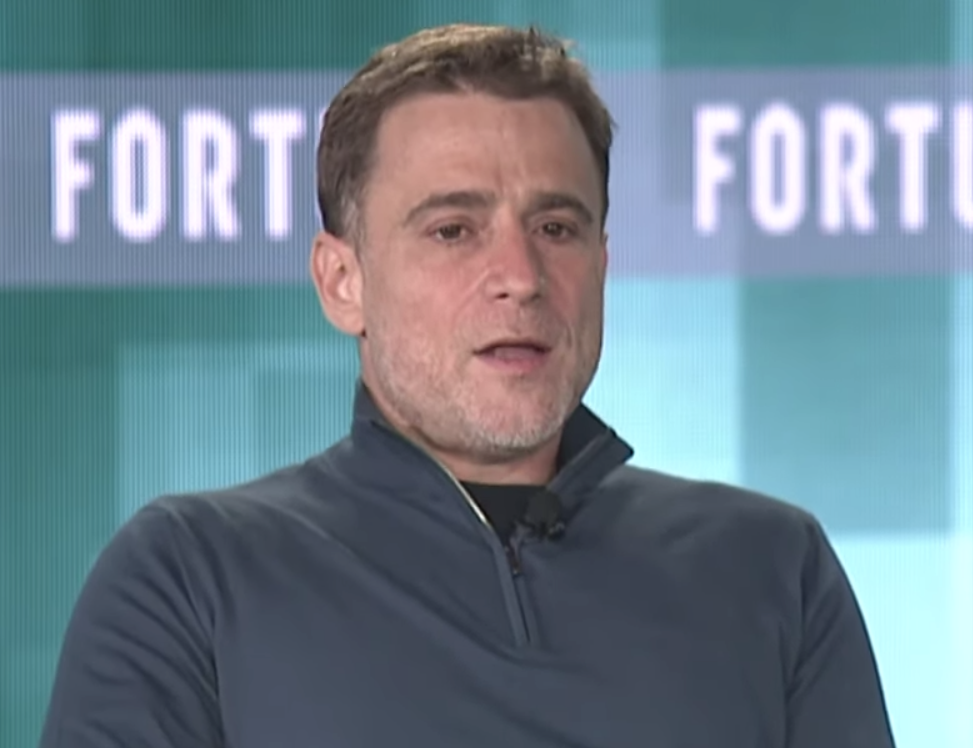“Whatever Microsoft does we’re still going to do the same thing that we would do for customers,” says Slack CEO Stewart Butterfield. “If the performance of our applications, like the number of milliseconds it takes to startup, is an important thing for customers, we will do that. If shared channels are an important feature we will develop shared channels. It doesn’t really matter what Microsoft does. We don’t spend a lot of time worrying about it.”
Stewart Butterfield, CEO of Slack, discusses the potential impact of competition with Microsoft in an interview by FORTUNE at Brainstorm Tech 2019:
It Doesn’t Really Matter What Microsoft Does
First, Microsoft is an incredible company. I’m a big admirer. They also have been a great partner for us. There are 500,000 active developers on the Slack platform and Microsoft would like them using Azure. Azure has also been a great partner. We just launched Office 365 calendar integration and a bunch of other stuff. So they’re big enough that they end up working with and competing with all kinds of people around the world. We don’t spend a lot of time worrying about it (Microsoft competition with Slack).
Whatever Microsoft does we’re still going to do the same thing that we would do for customers. If the performance of our applications, like the number of milliseconds it takes to startup, is an important thing for customers, we will do that. If shared channels are an important feature we will develop shared channels. It doesn’t really matter what Microsoft does. But having said that I think the emphasis has been a little bit different. Our emphasis has been really broadly on interoperability because we would like to be the two percent of your software budget that’s a multiplier on the value of the other 98 percent.
There are 1,600 apps in the app directory but there are also 450,000 different applications developed internally by our customers that are actively used every week on the Slack platform. That can be things like notifications flowing in or workflow approvals or purchase orders. It’s really varied from teams in finance, legal, engineering, sales, and customer support. That activity is really important to us and is where we see Slack going.
Size Doesn’t Matter, Real Traction With Customers Does
Five years (from when Microsoft was still in Albuquerque) they kind of pulled the rug out from under IBM which was at the time the biggest, most powerful, and most valuable company in the world. Go forward about 17 years and this one is kind of mind-blowing. Microsoft has a 95 percent share of operating systems with Windows. It has 90 plus percent share of internet browsers with Internet Explorer. It bought Hotmail, had MSN, and had probably the biggest engineering presence for stuff online.
It literally controlled almost all of humanity’s access to the Internet and they saw this little company in Mountain View starting to make a real business around search. Over the next couple of decades, tens of billions of dollars into that, and their (Bing) market share is now 9 percent or something like that.
You might think that’s special because the people at Google are real geniuses. But the same thing happened six or seven years later. In 2007, Google sees Facebook where people are spending a lot of time on social networks and that might be a good medium for advertising as well. If you wanted to comment on a video on YouTube you had to use Google Plus. I think the only time that Google ever promoted anything on its home page it was Google Plus. It was also promoted in Gmail and it didn’t matter. The fact that they had a thousand times more engineers and a thousand times more resources (didn’t matter).
They had access to maybe over a billion users even by that point and it just didn’t make a difference. The lesson that we take from that is that a smaller company, if it has real traction with customers, in some cases, has a bit of an advantage against a large incumbent with multiple lines of business. This is like the first 40 or 50 pages of The Innovators Dilemma. There are plenty of companies that have been crushed as well. I think that it’s hard to maintain a real focus on quality and on user experience and the bigger you get the harder it is.
If the competition was based on the quality of user experience and that’s where all the effort is that would be probably more daunting for us. If it’s based on their bigger distribution I don’t think that’s really a threat.





 WebProNews is an iEntry Publication
WebProNews is an iEntry Publication